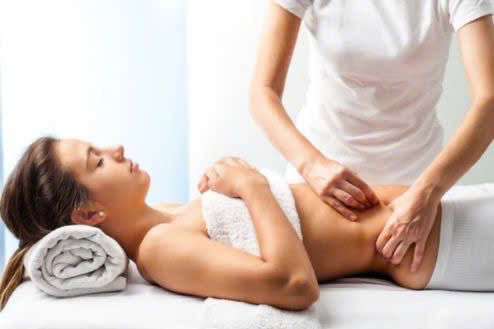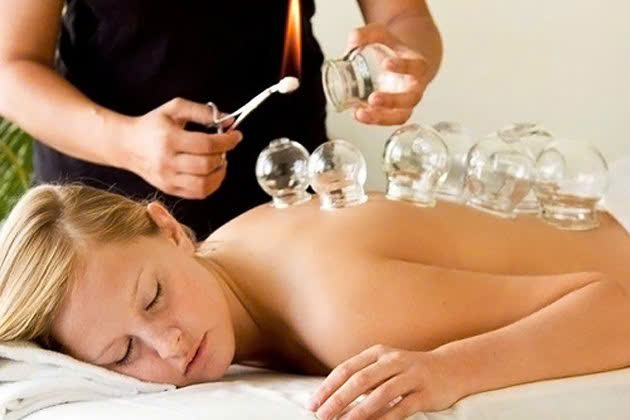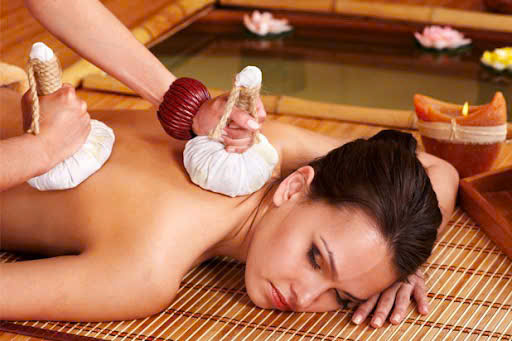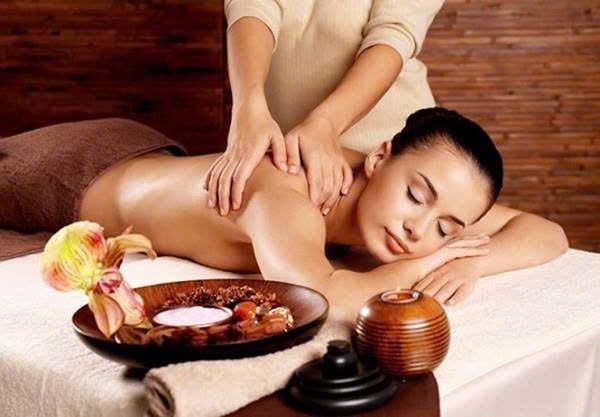Top 10 Reasons You Should Choose Massage for Health and Happiness
In today’s fast-paced and stress-filled world, maintaining health and happiness can often seem like a herculean task. Amid the hustle, one ancient and proven method stands out for its multifaceted benefits: massage. Not only does massage provide immediate relaxation, but it also fosters long-term health benefits that improve your overall quality of life.
The significance of massage in promoting physical, mental, and emotional well-being has been acknowledged for centuries. From alleviating chronic pain to reducing stress, massage offers a holistic approach to health that modern medicine is increasingly recognizing and integrating. In this article, we explore the top 10 reasons why massage should be an essential part of your health regimen, revealing how it can lead to a happier, healthier life.

The Role of Massage in Physical Health Maintenance
Physical health is foundational to overall well-being. Regular massage therapy can enhance physical health by improving circulation, easing muscular tension, and boosting immune function. These benefits are not only immediate but also contribute to long-term health stability.
Good circulation is vital because it ensures that oxygen and nutrients reach tissues effectively while facilitating the removal of metabolic waste products. When this process is optimized through massage, the body’s natural healing mechanisms are stimulated, helping to repair injuries faster and maintain tissue health.
Muscular tension and chronic pain are common issues in our modern sedentary lifestyles. Massage helps by targeting myofascial adhesions and knots, reducing pain, and restoring muscular flexibility. Over time, this can prevent injuries and improve posture, reducing the likelihood of repetitive strain injuries.
Research indicates that regular massage can enhance the immune system by increasing lymphocyte circulation, which is essential for fighting infections. This immune boost is especially significant during cold seasons or stressful periods when the body’s defenses are compromised. Incorporating massage into a health routine thus acts as both a preventive and therapeutic measure.
Improving Circulation through Massage
Effective circulation is crucial for overall health, impacting everything from energy levels to organ function. When blood flow is sluggish, tissues can become deprived of nutrients, leading to fatigue and increased injury risk. Massage techniques, especially Swedish and deep tissue massages, stimulate blood flow by applying rhythmic pressure, which dilates blood vessels and encourages better circulation.
Enhanced circulation also means more efficient delivery of immune cells to infections and damaged tissues. It reduces inflammation and swelling, especially in cases of injury or chronic conditions like arthritis. For individuals with circulatory issues such as varicose veins, massage can be part of a comprehensive treatment plan to manage symptoms.
The mechanical action of massage promotes vasodilation—widening of the blood vessels—resulting in increased blood flow. This not only helps in healing but also can boost energy levels and mental alertness, reinforcing the idea that massage is an investment in one’s health.
Easing Muscular Tension and Pain
In our daily lives, muscle tension arises from stress, repetitive movements, or poor posture. Persistent tension can lead to pain, reduced range of motion, and even anxiety. Massage works by mechanically breaking down adhesions and releasing trigger points, which are hyperirritable spots within muscle tissue.
Regular sessions can prevent chronic issues by maintaining tissue elasticity and flexibility. Athletes, for instance, use massage routinely for recovery, reducing soreness, and preventing injuries. Postural problems caused by prolonged sitting are also alleviated through targeted massage that addresses specific muscle groups.
Beyond physical relief, easing muscular tension also has mental benefits. When muscles relax, the body’s stress-response system quiets down, leading to a feeling of calming and happiness. This dual physical and psychological impact underscores why massage is a cornerstone of holistic health.
| Benefit | Explanation | Long-term Impact |
|---|---|---|
| Improved Circulation | Stimulates blood flow, delivers oxygen, and clears waste | Better energy, quicker healing |
| Reduced Muscle Tension | Releases knots and adhesions, restores flexibility | Fewer injuries, less pain |
| Enhanced Immunity | Boosts lymphatic flow, supports immune cell circulation | Greater resistance to illness |
Mental and Emotional Benefits of Massage
While the physical advantages are well-known, the mental and emotional benefits of massage are equally profound. The holistic nature of massage therapy addresses not just bodily discomfort but also mental stress, anxiety, and emotional tension, leading to a state of balanced happiness.
Stress reduction is perhaps the most celebrated psychological benefit of massage. When the body is relaxed, cortisol levels decrease while the production of endorphins and serotonin—natural mood elevators—increases. This biochemical response can combat feelings of anxiety and depressive symptoms, promoting a more positive outlook on life.
Massage therapy also induces a parasympathetic nervous system response—often called the “rest and digest” mode—reducing heart rate, blood pressure, and stress hormones. This calm state encourages mental clarity, emotional stability, and better sleep quality, which are fundamental to happiness and well-being.

Stress Relief and Mental Clarity
Chronic stress can have deleterious effects on both mind and body, contributing to numerous health issues like hypertension, insomnia, and even immune suppression. Massage acts as a natural antidote by reducing cortisol levels and alleviating the tension stored within muscles.
Many individuals find that after a massage, their mind becomes clearer, allowing improved focus and decision-making. This mental reset can lead to better productivity and sharper concentration in daily tasks. Furthermore, the release of serotonin and dopamine during massage sessions sustains feelings of well-being, reducing the risk of depression.
The mental calming effect of massage also promotes better sleep. Scientific studies suggest that regular massage therapy can modify sleep patterns by reducing insomnia symptoms, especially in people suffering from stress-related sleep disturbances. Better sleep enhances cognitive function and emotional resilience, reinforcing the cycle of health and happiness.
Emotional Balance and Happiness
Massage therapy’s ability to foster emotional balance is often overlooked but highly impactful. It provides a private sanctuary where individuals can disconnect from everyday worries and reconnect with their inner selves. Touch, when applied with empathy and professionalism, can be incredibly therapeutic, releasing emotional blockages stored in the body.
Many clients report a sense of euphoria or emotional upliftment after a massage session. This feeling stems from the release of endorphins—natural painkillers and mood enhancers—along with the calming effect on the nervous system. These psychological benefits transcend mere relaxation, fostering a sense of happiness that can extend into daily life.
In conclusion, the emotional benefits of massage are integral to its role as a tool for health and happiness. It cultivates resilience against stress, nurtures mental clarity, and offers a pathway to sustained emotional well-being.
Physical Rehabilitation and Chronic Condition Management
Chronic pain and rehabilitation from injuries are areas where massage demonstrates profound benefits. It offers a non-invasive, drug-free approach to managing discomfort and restoring mobility, particularly useful for people suffering from long-term health issues.
Massage therapy complements medical treatments, enhancing recovery from surgeries and injuries. It also supports the management of conditions such as fibromyalgia, arthritis, and sciatica, where pain and stiffness significantly impair life quality.
The physical effects of massage in rehabilitation are supported by scientific evidence demonstrating improved range of motion, decreased pain perception, and faster tissue repair. Recognizing massage’s role in such contexts promotes its acceptance as a critical component of comprehensive health care.

Rehabilitation for Injuries and Post-Surgical Recovery
Injury recovery often involves restoring not just the damaged tissues but also re-establishing normal muscle function and flexibility. Massage accelerates this process by stimulating blood flow and lymphatic drainage, which remove metabolic waste and supply nutrients needed for healing.
Post-surgical patients especially benefit from gentle massage techniques that reduce edema and improve joint mobility. Careful application of massage can also prevent scar tissue from becoming overly restrictive, thus improving functional outcomes.
Furthermore, massage minimizes the reliance on pain medication during recovery, reducing side effects and dependency risks. It provides a sense of empowerment to patients, giving them an active role in their healing process.
Managing Chronic Conditions with Massage
Chronic conditions such as fibromyalgia, rheumatoid arthritis, and sciatica are characterized by persistent pain and discomfort. Regular massage therapy can decrease pain severity, improve sleep, and enhance overall quality of life for sufferers.
For example, in rheumatoid arthritis, massage helps reduce joint stiffness and improves circulation around affected areas, decreasing inflammation and pain. In fibromyalgia, it mitigates widespread musculoskeletal pain and fatigue, providing much-needed relief.
These benefits highlight the importance of massage as a supportive therapy, working alongside medication and physical therapy to construct a holistic treatment plan.

Advantages in Long-Term Care
The long-term advantages of incorporating massage into health care routines are substantial. It can reduce the need for medication, lower the risk of secondary complications, and foster emotional resilience in dealing with chronic health issues.
Regular massage sessions created specifically for rehabilitation help sustain mobility, reduce pain, and boost morale, which is crucial for those living with ongoing health challenges. Moreover, personalized massage plans can be adapted to individual needs, making therapy both effective and enjoyable.
The Scientific Evidence Supporting Massage
The broad spectrum of massage benefits is backed by extensive scientific research and clinical trials. As the practice becomes more integrated into mainstream healthcare, understanding the data demonstrates its importance and potential for wider acceptance.
Studies show that massage reduces cortisol levels, improves serotonin and dopamine, and enhances immune function, confirming its mental and physical health benefits. The table below summarizes key research findings across different health outcomes.
| Study Focus | Key Findings | Implication |
|---|---|---|
| Stress Reduction | Significant decrease in cortisol after massage sessions | Critical for mental health and resilience |
| Pain Management | Decreased perception of pain in chronic pain patients | Supports use in rehabilitation and chronic pain management |
| Immune Function Enhancement | Increased lymphocyte activity post-massage | Boosts body’s ability to fight infections |
| Sleep Quality Improvement | Improved sleep patterns for people with insomnia | Important for mental and physical health |
| Mood Enhancement | Elevated serotonin and dopamine levels | Contributes to happiness and emotional stability |
By consolidating these data points, it’s clear that massage’s multifaceted benefits are well-founded in science, underscoring its value as an essential component of health care.
Conclusion
In summary, is a powerful, natural way to enhance physical health, mental well-being, and emotional balance. Its benefits extend beyond mere relaxation, facilitating better circulation, alleviating pain, boosting immunity, and fostering happiness. Whether used as part of a daily health routine, rehabilitation therapy, or stress management, offers a comprehensive approach to achieving a healthier, happier life. As science continues to validate its effectiveness, embracing as a vital health practice becomes an increasingly compelling choice for those seeking holistic well-being and joy.
The Psychological Benefits of Massage
The psychological impact of therapy is profound and multifaceted, influencing emotional well-being, mental health, and even interpersonal relationships. As we navigate the stressors of daily life, the need for healing and comfort becomes ever more crucial, making a valuable ally in promoting mental wellness.
Stress Reduction through Touch
Touch is a fundamental human need, and the act of receiving a goes beyond mere physical relief; it fosters emotional release and psychological ease. Research has consistently shown that therapy can significantly lower stress levels. The calming effect of touch releases oxytocin, often referred to as the “love hormone,” which plays a role in bonding and feelings of comfort.
This physiological response is complemented by significant reductions in cortisol levels — the hormone associated with stress. Lower cortisol levels lead to reduced anxiety, improved mood, and better overall emotional health. This emotional respite can transform patients’ experiences, creating a space for healing where they may feel supported, nurtured, and understood.
Moreover, allows for an opportunity to disconnect from daily challenges; clients often report a sense of peace and relaxation that reduces racing thoughts and promotes a mind-body connection. It can serve as a moment of self-care that is vital in our fast-paced world, reminding individuals to prioritize their mental and emotional health.
Enhancing Mood and Emotional Resilience
The effects of regular massage extend to enhanced mood stability and emotional resilience. By increasing levels of serotonin and dopamine, massage helps to balance neurotransmitters that regulate mood. As these neurotransmitters rise, feelings of happiness, contentment, and motivation follow suit. This biochemical response is particularly beneficial for those managing depression, anxiety, or stress.
An often-overlooked aspect of is its potential to build a supportive relationship between therapist and client. This dynamic can bolster self-esteem and foster trust, providing a foundation for personal growth and healing. Feeling cared for and validated during a session empowers clients and instills a sense of agency over their health journey.
Additionally, consistent therapy can contribute to a greater awareness of one’s body, leading to improved self-image and self-acceptance. As awareness grows, clients may develop healthier relationships with their bodies and emotions, enabling them to manage life’s challenges with greater ease and clarity.
Facilitating Social Connections
therapy can also enhance social connectivity, allowing individuals to form bonds and supportive networks through shared experiences. Group sessions or community wellness programs create environments where people can connect, share stories, and find common ground in their healing journeys.
Furthermore, for individuals seeking solace during difficult times or transitions, receiving massage can reinforce the importance of human connection. The nurturing touch transcends language and barriers, creating spaces for vulnerability, allowing individuals to express their emotions freely and authentically.
Moreover, engaging in therapy can open pathways to building deeper connections with friends, family, and partners. Sharing the experience of or recommending it to loved ones can facilitate conversation and understanding, thus enriching interpersonal relationships. This ripple effect of emotional well-being can ultimately lead to stronger, healthier communities.
The Role of Massage in Athletic Performance
Athletes of all levels are increasingly turning to as an essential component of their training regimen. The benefits of therapy in sports performance extend beyond recovery, encompassing aspects such as injury prevention, improved flexibility, and enhanced overall athletic function.
Injury Prevention and Recovery
Injuries are an inherent risk in athletic pursuits, and preventive measures are essential for sustained performance. Regular therapy can help maintain muscle health by enhancing flexibility and range of motion, making athletes less prone to strains and sprains. By keeping muscles supple and relaxed, promotes better overall biomechanics, allowing athletes to move more efficiently and safely.
Moreover, the integration of into post-injury recovery plans has shown significant positive outcomes. Techniques such as deep tissue facilitate increased blood flow, which promotes the healing process by delivering oxygen and nutrients to damaged tissues. This speeds up recovery time and allows athletes to resume their training with minimal downtime.
In addition to physical recovery,contributes to psychological healing by addressing the mental toll that injuries can take. By creating a supportive space for athletes to process their injuries and regain confidence, can be a pivotal component in getting them back to peak performance.
Enhancing Performance
When athletes incorporatetherapy into their training routine, it can lead to measurable improvements in performance. Regular sessions allow for the release of tension accumulated through rigorous training, enabling athletes to achieve optimum physical conditioning.
Research indicates that athletes who undergo regular report improved flexibility, strength, and endurance. This is largely due to the relaxing effects of , which counteracts the repetitive strain on muscles and joints incurred during training. By reducing tightness and enhancing circulation, ensures that athletes can perform at their highest capacity uninhibited by discomfort.
Additionally, the holistic benefits of extend to mental preparation, fostering a state of relaxation and focus — essential qualities for competitive and performance-driven situations. Athletes who engage in regular are often better equipped emotionally, allowing them to enter competitions with a calm and centered mindset.
Post-Event Recovery
The days following an intense athletic event can be critical for recovery, and plays a vital role during this phase as well. After expending considerable energy, athletes require methods to facilitate the body’s recovery process, reduce soreness, and restore muscle function.
Post-event helps alleviate delayed-onset muscle soreness (DOMS) by the gentle manipulation of muscles, which promotes the removal of metabolic waste and improves circulation. As a result, athletes often report reduced muscle fatigue and faster recovery times, enabling them to return to their training routines sooner.
Additionally, the psychological benefits are equally significant during this recovery phase. The feeling of being cared for and rejuvenated through can enhance an athlete’s emotional recovery, allowing them to celebrate their efforts and achievements fully. By addressing both their physical and emotional needs, therapy serves as a comprehensive tool in the athletic repertoire.https://www.tiktok.com/@jobe.spa.massage?_t=ZS-8uucYtHwssr&_r=1
Conclusion
In summary, serves as a multifaceted therapeutic modality that stimulates not just physical healing but also emotional strength and social connections. Its profound psychological impact includes stress reduction, mood enhancement, and improved relational bonds, clearly highlighting its role in promoting mental health. Moreover, the athletic community has embraced as an integral aspect of training, injury prevention, and post-event recovery, underscoring its importance beyond mere relaxation. As understanding of therapy continues to grow, embracing this practice within holistic well-being and performance enhancement will lead to healthier and more fulfilled individuals.https://jobedubaispa.com/four-hands-massage-therapy/
